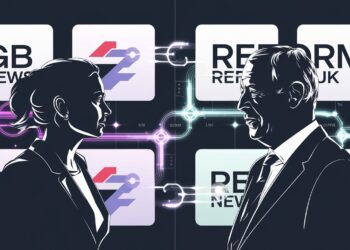In a remarkable turn of events, former U.S. President Donald Trump has voiced his support for the H-1B visa program, aligning himself with tech billionaire Elon Musk in a heated debate over skilled immigration. The unexpected alliance between the influential figures has sent shockwaves through the political and business worlds, igniting fierce discussions on the role of foreign talent in America’s tech industry.
Trump’s Surprising Stance
Trump, who had previously taken steps to limit the use of H-1B visas during his presidency, stunned many when he declared his backing for the program in a recent interview with the New York Post. “I have many H-1B visas on my properties. I’ve been a believer in H-1B. I have used it many times. It’s a great program,” he stated, revealing a position that stands in stark contrast to his earlier policies and the views of some of his most ardent supporters.
The former president’s remarks came in response to a series of social media posts by Musk, the CEO of Tesla and SpaceX, who had vowed to go to “war” to defend the H-1B visa program. Musk, himself a former H-1B visa holder, has been an outspoken advocate for the importance of skilled immigration in driving innovation and economic growth in the United States.
The Musk Connection
Elon Musk, a naturalized U.S. citizen born in South Africa, has long been a champion of the H-1B visa program. His companies, Tesla and SpaceX, have relied heavily on skilled foreign workers, with Tesla alone obtaining 724 H-1B visas this year. Musk’s passionate defense of the program has put him at odds with some of Trump’s most vocal supporters, who view immigration as a threat to American jobs and cultural identity.
The H-1B visa program is essential for maintaining America’s technological supremacy. Without it, we risk falling behind in the global race for innovation and economic leadership.
– Elon Musk
Backlash from the Base
Trump’s endorsement of the H-1B visa program has been met with fierce criticism from some of his most loyal supporters, many of whom have long advocated for stricter immigration policies. Steve Bannon, a former Trump adviser, lambasted “big tech oligarchs” for their support of the program, characterizing immigration as an existential threat to Western civilization.
The rift between Trump and his base on this issue highlights the complex and often contradictory nature of the immigration debate in the United States. While some view skilled immigration as a vital source of talent and innovation, others see it as a threat to American workers and a tool for corporate exploitation.
The Tech Industry’s Reliance on H-1B Visas
The H-1B visa program has long been a critical component of the U.S. tech industry’s talent strategy. Companies like Google, Microsoft, and Amazon rely heavily on skilled foreign workers to fill key positions in fields such as software engineering, data science, and artificial intelligence. Proponents of the program argue that it allows American companies to attract the best and brightest minds from around the world, driving innovation and economic growth.
- Over 70% of H-1B visas are issued to workers in computer-related occupations
- H-1B visa holders contribute an estimated $37 billion to the U.S. GDP annually
Critics, however, contend that the program is often abused by companies seeking to undercut American workers and drive down wages. They argue that many H-1B visa holders are paid less than their American counterparts, and that the program disincentivizes companies from investing in the domestic workforce.
The Path Forward
As the debate over the H-1B visa program continues to rage, the unlikely alliance between Donald Trump and Elon Musk has added a new layer of complexity to the issue. While it remains to be seen how this development will impact the broader immigration landscape, it is clear that the role of skilled foreign workers in the U.S. economy will remain a contentious and deeply divisive topic for the foreseeable future.
Policymakers will need to grapple with the competing interests of industry, labor, and national security as they work to craft a sustainable and equitable immigration system. The stakes could not be higher, as the outcome of this debate will have profound implications for America’s economic competitiveness and its standing as a global leader in innovation and entrepreneurship.
As the nation navigates this complex and emotionally charged issue, it will be essential for all stakeholders to engage in honest and constructive dialogue, seeking common ground and forging solutions that balance the needs of American workers with the imperatives of a rapidly evolving global economy. Only by working together can we hope to build an immigration system that is both fair and effective, one that serves the interests of all Americans while ensuring that the United States remains a beacon of opportunity and innovation for generations to come.








